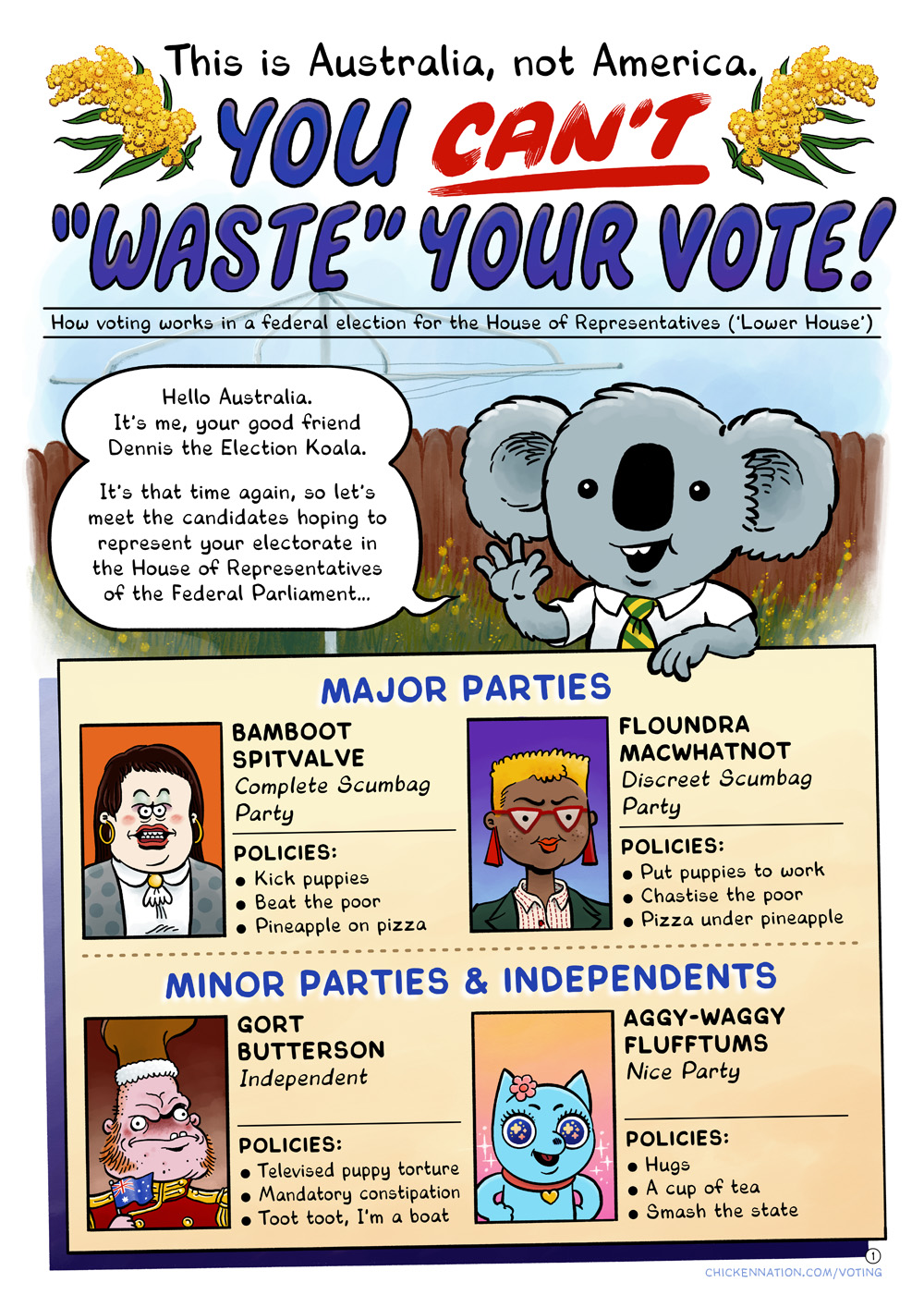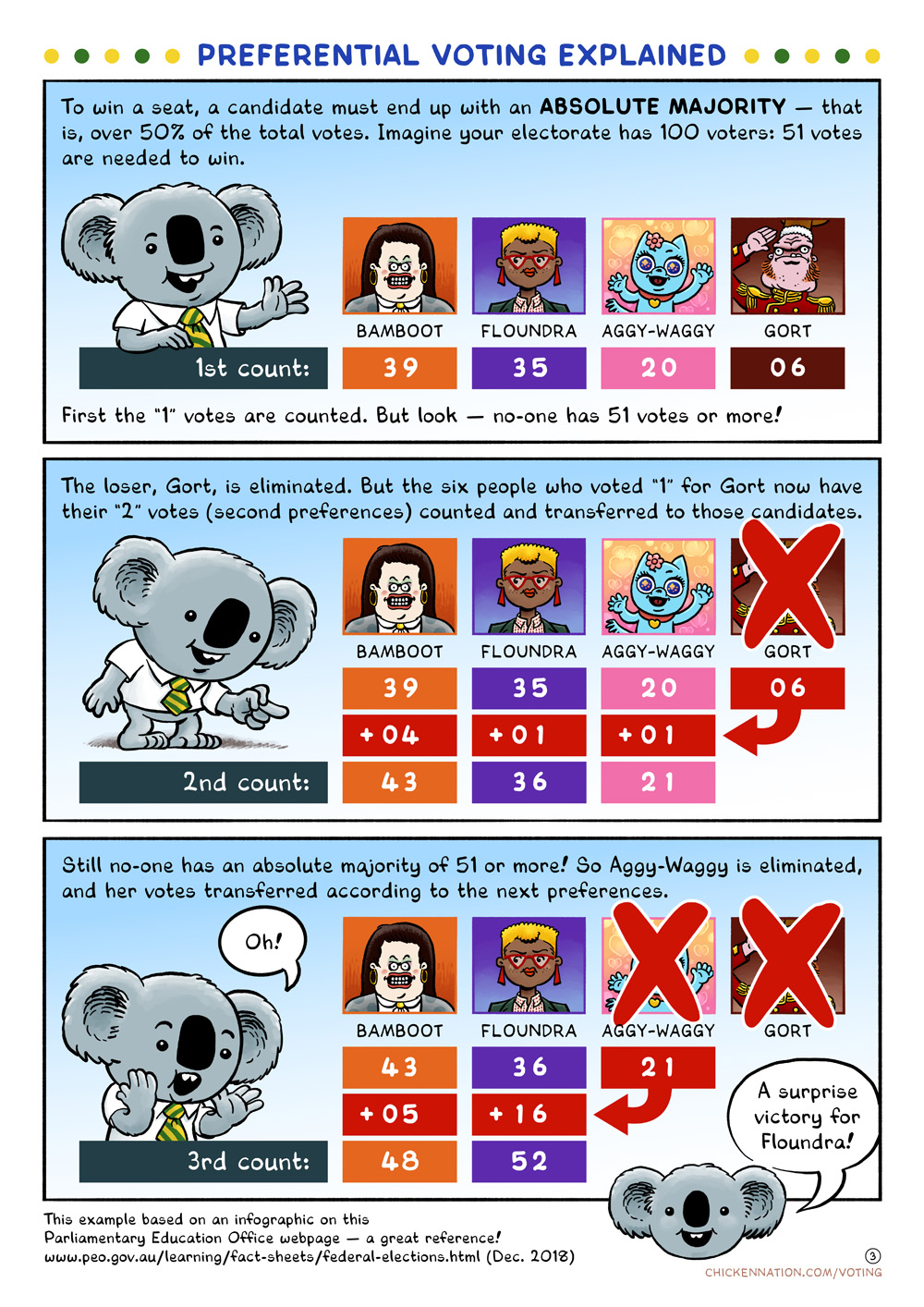- Location
- UTC+0
- Pronouns
- He/Him/They
The major parties will still be somewhat dominant, their advantages in funding, membership and name recognition are hard to overcome. Political advertising is expensive and limited in this time period, which means the voters will likely choose the parties they are more familiar with than voting for some random person or party.Okay i am going to Adress why giving young untested politicians and young and fresh parties a chance is a horrible idea in detail, don't have the time at the moment
Also, this:
Minority parties won't play kingmaker as I have described because unless they can martial up the strength in single districts, in which case as I have said they frankly deserve to win that district since except for the right and far right parties, we're probably second or third choice between SPD and Zentrum on their ballots.
For the sake of not having to awkwardly futz around on explaining the Australian System more, everyone please welcome Ken the Voting Dingo!







